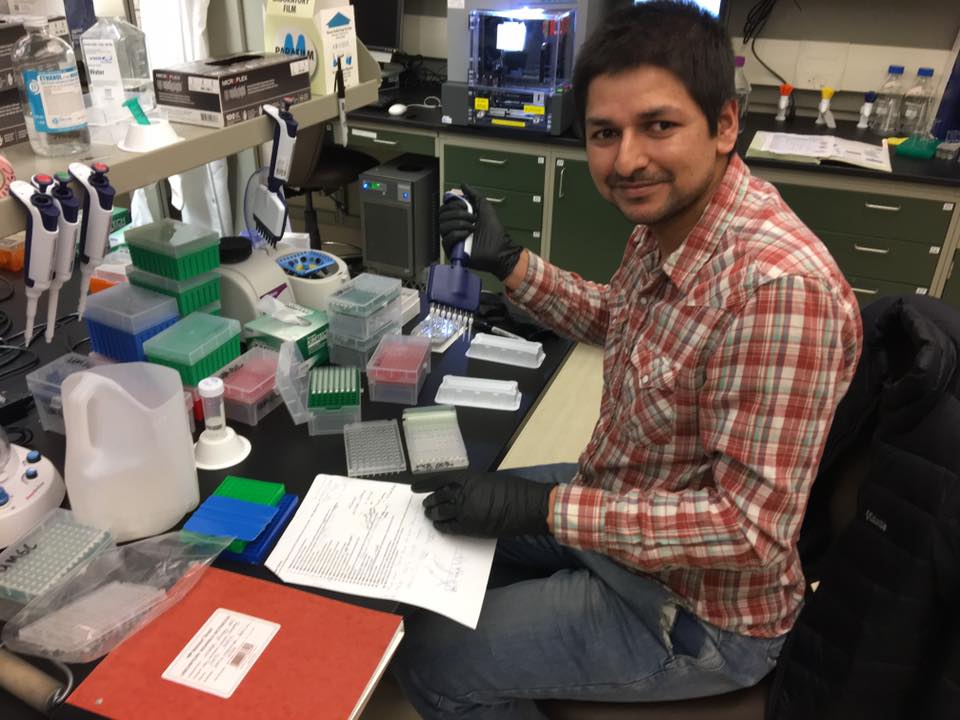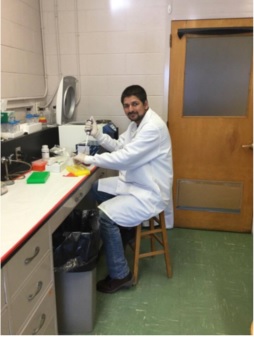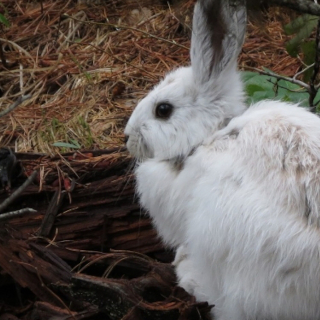Introducing visiting PhD student Faraz Akrim

Faraz Akrim has been a visiting PhD student in the Mills Lab since November 2016 and will be leaving us shortly at the end of April. Before he departs we wanted to give Faraz a chance to introduce himself and his work. Its been great to have him with us and we'll be excited to share future updates as his research progresses! Here's Faraz:
Background and current interests and field of study
I was born and raised in the state of Azad Jammu and Kashmir, Pakistan. I completed my Master’s degree at the University of Azad Jammu and Kashmir, Muzaffarabad, Pakistan in 2011. After completing my Master’s I was admitted to Pir Mehr Ali Shah Arid Agriculture University, Rawalpindi, Pakistan in M.S., Wildlife Management (2011-2013). During my M.S., I had the opportunity to work in a Higher Education Commission (HEC) Pakistan funded project as a Research Associate. I enrolled in Ph.D., (2013 to date) to further pursue my interest in wildlife with a focus on sympatric carnivores at Pir Lasura National Park, Azad Jammu and Kashmir, North-Eastern locale of Pakistan.
My overall research activities encompass two interconnected areas of investigation:
- Studies on ecology of mammals and birds
- Spreading awareness and educating local communities for conservation of wildlife
I am working on the ecology of the Indian Pangolin in Pakistan since 2012. Pangolins are the most illegally traded species on the planet and facing many threats. In Pakistan Pangolin are killed for their scales and due to the false myths among locals that it digs graves of humans and feeds on dead bodies. Therefore, my focus is to spread awareness education among local communities for conservation of Indian Pangolin, the only member of order Pholidota found in Pakistan.
I have also been working on population ecology of vultures in Kashmir. I have documented diversity, distribution, population, breeding and threats to vultures in Kashmir for the first time. I have also been working on habitat preference, roosting behavior and threats to Red Junglefowl in Deva Vatala National Park, Azad Jammu and Kashmir, Pakistan.
My Work in the Mills lab
As part of the higher education commission International Research Support Initiative Program, I came here to the University of Montana to work with Dr. Scott Mills and his lab group. People of Montana are so nice and cooperative - I feel like I am at home. In University of Montana I am working on a component of my PhD project which focuses on the application of non-invasive genetic sampling to understand diet composition of sympatric carnivore species. I have identified scats of carnivores using traditional Sanger sequencing method and am now working to identify the prey species of carnivores.
Faraz Akrim, PhD Candidate

Extracting DNA from the scats of carnivores. Photo credit: Tashi Dhenup
